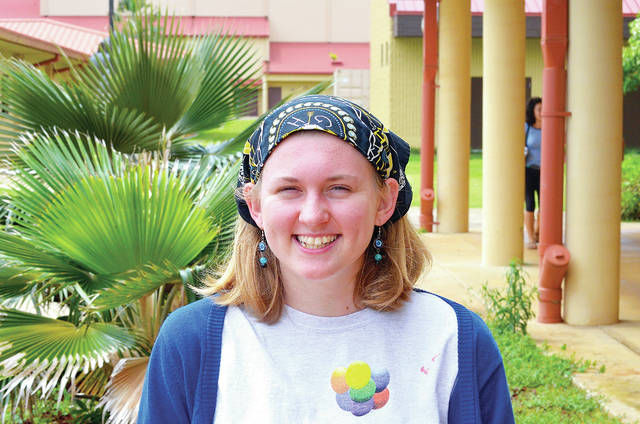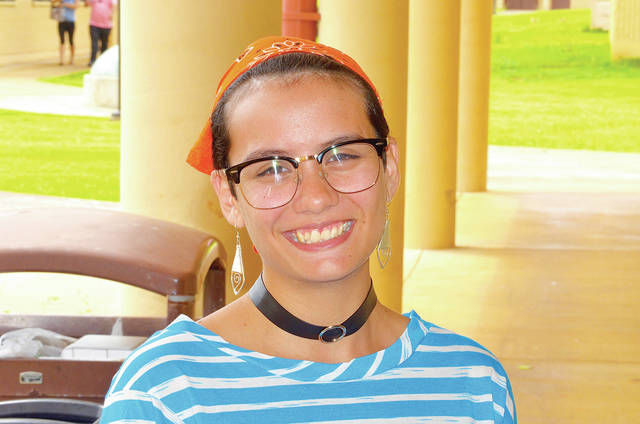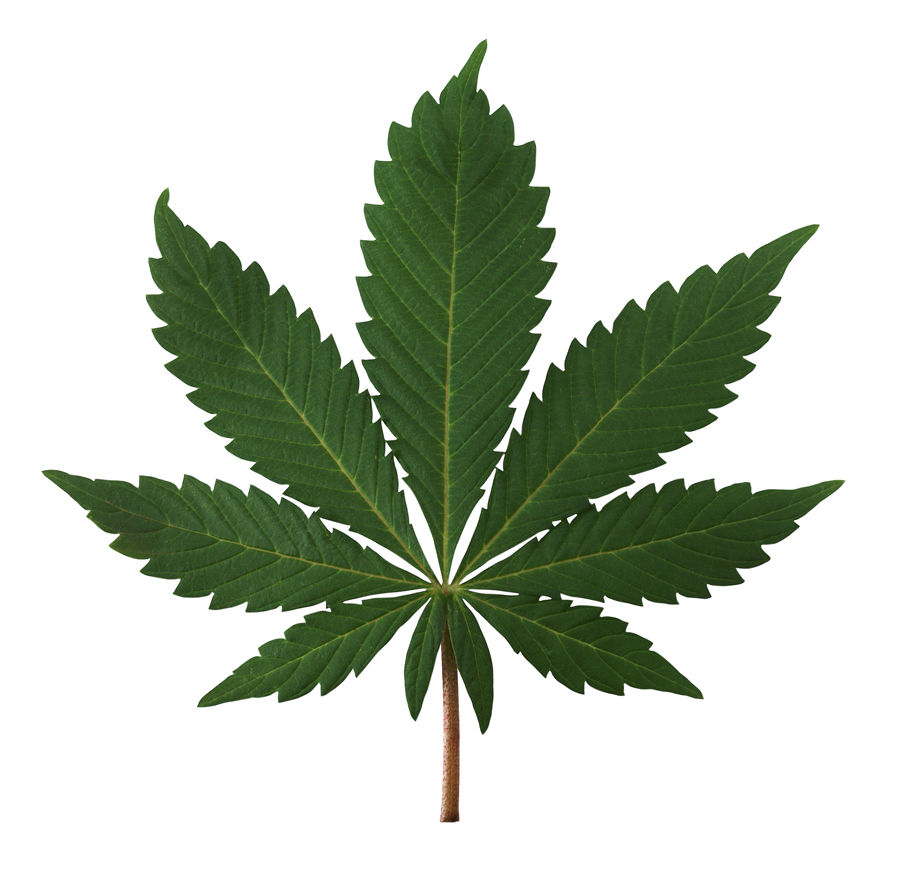PUHI — Thursday might have been a cloudy day on Kauai, but it wasn’t just because of the weather. April 20, also known as 4/20, is widely regarded as the nonofficial day to celebrate marijuana — also referred to as
PUHI — Thursday might have been a cloudy day on Kauai, but it wasn’t just because of the weather.
April 20, also known as 4/20, is widely regarded as the nonofficial day to celebrate marijuana — also referred to as pot, dope, kush or any other slang.
At Wednesday night’s town hall meeting at the Kauai Veterans Center, U.S. Rep.Tulsi Gabbard, D-Hawaii, was steadfast in her support of decriminalizing and legalizing the drug, which garnered support from the local community. In particular, young adults on Kauai.
“I think it should be (legalized),” said Livingston Rowan, a 26-year-old Kalaheo resident. “I feel like marijuana isn’t the typical gateway drug like alcohol is. If all adolescents and high schoolers smoked weed instead of dabbling into meth and crack cocaine, they probably wouldn’t go that far if they were just smoking weed.”
Rowan is an advocate of the “just blaze it” lifestyle and some students at Kauai Community College agreed with Rowan’s sentiments, even though they don’t necessarily partake in the recreational activity.
“I grew up in Boulder, Colorado, most of my life, so that’s one place where it’s legal, and I did some research to try to see if it’s actually bad for you, and there’s some statistics that say it’s actually not so bad,” said Keli Hall. “And it’s the government that makes it seem bad. I don’t think it’s a bad thing, and I approve it — even though I don’t smoke or do drugs or anything like that.”
Shaina Nacion said she doesn’t have as much information on the topic as some of her fellow students, but does see benefits of using marijuana for medicinal reasons.
“I try to keep an open mind about that kind of thing,” Nacion said. “I know for a lot of people it has medicinal uses, especially for people going through chemo and stuff like that. I don’t really see too many problems with it besides people keeping safe. I also don’t think it’s a good idea if people show up to work stoned.”
Nacion added that if legalization were to occur, regulations would have to be put in place to prevent incidents.
“As far as recreational use goes, I’d be interested in hearing what regulations would be in place so that people aren’t just getting high and driving around,” she said.
Jessie Hedstrom disagreed that marijuana should be in the same Schedule 1 drug classification as heroin, but also pushed for regulation.
“I think that it’s OK as long as the restrictions on it stay in place,” she said. “I don’t think it should be legalized for everyday use, but it should be for medicinal uses.”
Rowan also disagreed with the Schedule 1 classification for marijuana, which puts it on the federal Controlled Substance List on par with drugs like cocaine.
“That’s ridiculous! You can gauge how much addiction someone has to heroin; whereas marijuana, you can’t really gauge an actual dependency on it,” he said. “With marijuana, it’s a more freely-used drug. Heroin causes a lot of deaths, and people are clinically addicted to it and need to be given drugs just to get them off it. You don’t need any of that for marijuana; you just eat a lot of food.”
The penalties of possession or usage of marijuana are too high, said Rowan, and that’s something Gabbard also talked about at the town hall meeting.
“We’re turning people into criminals, ruining their lives, tearing families apart, for the use or possession of a substance that has been proven time and again to be far less dangerous than alcohol,” she said.




